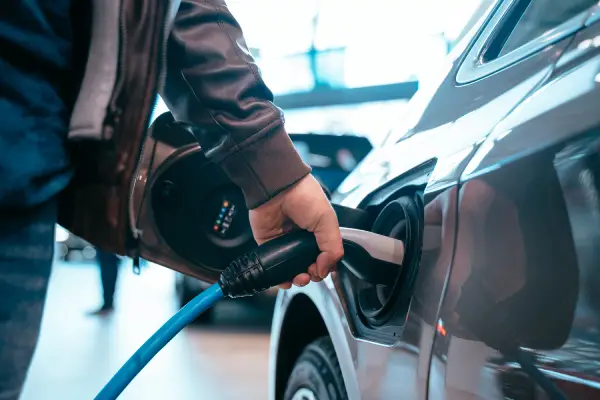In recent years, a noteworthy shift has been observed in the automotive industry. Electric vehicles (EVs) have surged from a novel concept to a practical solution for daily transportation, especially in the realm of business. A car supports personal finances and even businesses. Given the UK government’s commitment to zero-emission goals by 2050, companies investing in electric cars are afforded significant tax benefits.
A New Age Of Transportation – Business Embracing EVs
The adoption of electric vehicles is not just a sustainable move; it also provides a solid economic case. Businesses are recognising the potential of vehicles such as the BMW IX1 and Vauxhall Mokka E. These EVs are not just cost-efficient, but they also align businesses with the growing ‘green’ consumer sentiment.
Understanding The Tax Benefits Of Electric Cars For Businesses
A significant part of the economic argument for businesses to invest in EVs comes from the future business tax incentives offered by the UK government. Here’s how your business could benefit.
Benefit In Kind (BIK) Rates
In the UK, if a business provides a company car that the employee can use for personal journeys, a Benefit in Kind tax is applied. For EVs, there has been a significant reduction in BIK rates. As of the 2021/2022 tax year, zero-emission vehicles attract a BIK rate of just 1%, rising marginally to 2% for the 2022/2023 tax year and remaining at this rate until 2025.
This BIK tax relief is an excellent advantage for businesses that provide company cars, such as the BMW IX1 for sale. This EV can result in significant tax savings for both employees and employers.
Capital Allowances
Another incentive for businesses investing in EVs is the First Year Allowances (FYA) for low-emission cars. Just like considering costs when insuring a commercial van, businesses purchasing new EVs can write off the full cost against their pre-tax profits in the first year. The FYA is particularly attractive to businesses as it significantly reduces the taxable profit, and consequently, the amount of corporation tax they owe.
This relief applies to new cars with zero CO2 emissions, making the electric Vauxhall Mokka E an excellent choice. As a 100% electric car, the Vauxhall Mokka E can yield substantial tax savings for businesses under this scheme.
Vehicle Excise Duty (VED)
Electric vehicles are exempt from Vehicle Excise Duty, also known as road tax. This benefit applies not only to personal EVs but also to businesses using EVs. Therefore, investing in EVs like the BMW IX1 or Vauxhall Mokka E will save businesses the annual road tax they would otherwise need to pay for conventional petrol or diesel vehicles.
EV Charging – Another Area Of Benefit
The UK government also provides tax benefits for the installation of electric vehicle charging points at workplaces. Under the Workplace Charging Scheme (WCS), businesses can avail of a grant that covers up to 75% of the costs of installing EV charge points, capped at £350 per socket, up to a maximum of 40 sockets.
The installation of charging points at the workplace also offers tax benefits. There’s no Benefit in Kind (BIK) tax on electricity that employers provide to charge employees’ EVs at the workplace. This advantage further enhances the appeal of EVs in a business context.
Driving Forward With Green Initiatives
Investing in EVs such as the BMW IX1 and the Vauxhall Mokka E is also a powerful way for businesses to contribute to their Corporate Social Responsibility (CSR) initiatives. As companies worldwide face increasing pressure to demonstrate their commitment to sustainable practices, the switch to electric vehicles sends a clear message to customers, shareholders, and the wider public about the company’s environmental commitment. Furthermore, a greener fleet could lead to enhanced brand reputation and competitive advantage, especially among eco-conscious customers.
Making the Switch – Now Is the Time
There’s no denying the current climate crisis that the world is facing, and businesses have a pivotal role to play in driving change. By transitioning to electric vehicles, companies can contribute significantly to reducing carbon emissions and fostering a sustainable future. Coupled with the government’s generous tax incentives, now is indeed an opportune time to make the switch. Remember, the journey of a thousand miles begins with a single step. Your next company car could be a BMW IX1 or a Vauxhall Mokka E. After all, embracing the future means driving electric.
Navigating The Future With Electric Vehicles
The tax benefits discussed here form a compelling case for businesses to transition their fleets to electric vehicles. While the upfront costs of EVs like the BMW IX1 or Vauxhall Mokka E may be higher than conventional cars, the potential for savings over the lifetime of the vehicle is significant.
Businesses need to look beyond the initial purchase price and consider the long-term cost of ownership. With the reduced operating costs, tax incentives, and the positive impact on the company’s environmental footprint, the best automotive agencies makes electric vehicles offer an exciting path forward for businesses across the UK.
There’s no doubt that electric vehicles are the future of transportation. With their superior efficiency and the tax advantages they offer, EVs are an investment that businesses can no longer afford to ignore. It’s time to embrace the electric revolution.
 Business First Family Business, Accounting, Finance, Investing, Marketing And Management
Business First Family Business, Accounting, Finance, Investing, Marketing And Management
